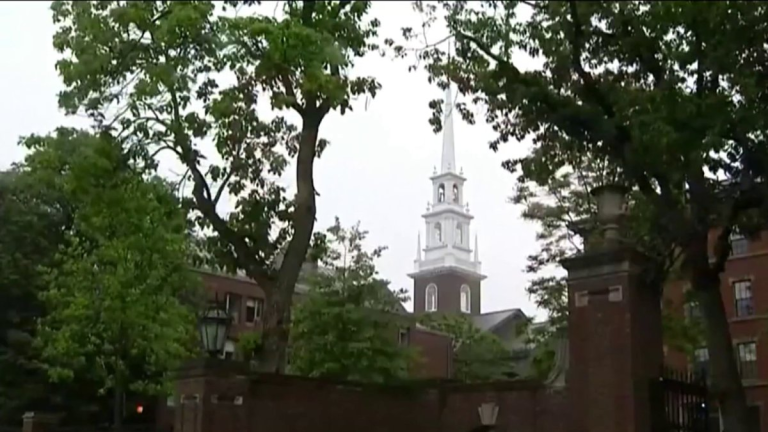
SlaveVoyages, a pivotal digital tool for exploring the trans-Atlantic slave trade, is making an important transition to Harvard University. This comprehensive platform, supported by the Hutchins Center for African & African American Research, has been instrumental in bringing to light crucial data regarding history’s most extensive slave trades. Founded by David Eltis, this database encompasses information on over 30,000 slaving vessels and nearly 221,000 individuals affected by this profound human tragedy between the 16th and 19th centuries. The project’s commitment to open access not only enhances the educational landscape but also aids in the ongoing discussion about slavery’s legacy in America. As it finds its new home at Harvard, SlaveVoyages stands ready to enrich the academic community’s understanding of the impact of the trans-Atlantic slave trade.
The transfer of SlaveVoyages to Harvard signifies a monumental step in preserving and studying the historical intricacies of the Atlantic slave trade. This groundbreaking initiative provides invaluable insights into the brutal realities faced by countless individuals during this shameful epoch. With its extensive digital collection, this resource becomes a vital asset for historians, educators, and students alike, aiding in scholarly research and enhancing public awareness of the slave trade’s consequences. The collaboration between Harvard’s Hutchins Center and various scholarly foundations underscores a commitment to shedding light on the realities of slavery while fostering informed discourse within academia. As discussions on historical narratives evolve, tools like SlaveVoyages become essential in constructing a clearer understanding of this dark chapter in history.
The Significance of SlaveVoyages in Understanding the Trans-Atlantic Slave Trade
SlaveVoyages serves as a vital digital archive that provides unprecedented insights into the trans-Atlantic slave trade, which forcibly transported millions of Africans to the Americas between the 16th and 19th centuries. This invaluable resource, now housed at Harvard University, offers a comprehensive dataset, detailed records of over 30,000 slaving vessels, and information on nearly 221,000 individuals involved in this brutal historical chapter. The tool not only sheds light on the logistical framework of the slave trade but also humanizes the experience by documenting individual lives, their journeys, and the economic systems that perpetuated this cycle of exploitation.
By making this wealth of data publicly accessible, SlaveVoyages empowers researchers, educators, and the general public to engage critically with the historical narrative of the trans-Atlantic slave trade. As it is backed by the Hutchins Center and the Legacy of Slavery Initiative at Harvard, the future of this project looks promising, fostering a collaborative environment aimed at truth and reconciliation regarding America’s complex ties to slavery. The integration of advanced technologies, such as 3D visualizations and time-lapse mapping, enhances the educational experience, allowing visitors to visualize the harrowing voyages and understand their implications more deeply.
Harvard’s Role in Preserving the Legacy of SlaveVoyages
Harvard University’s commitment to education and historical truth is exemplified in its support for SlaveVoyages. By relocating this project to its campus, Harvard not only preserves the extensive data compiled over decades but also solidifies its role as a leading institution in African and African American studies. The collaboration between the Hutchins Center and the Legacy of Slavery Initiative amplifies the university’s mission to facilitate knowledge sharing and foster dialogue about the legacies of slavery in contemporary society.
The presence of renowned scholars like Henry Louis Gates Jr. and David Eltis at Harvard underscores the academic rigor and dedication to uncovering the multifaceted impacts of the trans-Atlantic slave trade. Their continued advocacy and research inspire future generations of students, encouraging them to engage with these critical historical issues. The strategic partnership with other funding organizations, like the National Endowment for the Humanities, further legitimatizes the necessity of this project in today’s academic landscape.
Celebrating Scholarly Contributions to SlaveVoyages
The April conference hosted by the Hutchins Center not only celebrated the move of SlaveVoyages to Harvard but also highlighted the groundbreaking work of countless researchers over the years. Featuring a variety of panels and discussions, the event brought together scholars who have dedicated their careers to studying the trans-Atlantic slave trade and its impacts. This academic gathering showcased the interdisciplinary nature of the research, stemming from history, genetics, and technology, thereby enriching the understanding of this complex historical topic.
Through presentations and discussions on genetic impacts and potential technological integrations, the conference exemplified the innovative spirit that SlaveVoyages embodies. By connecting historical data with modern scientific approaches, researchers are uncovering multifaceted narratives that deepen our understanding of the lasting consequences of the slave trade. These scholarly contributions not only expand the database but also ensure that the history remains relevant and accessible to a global audience.
The Legacy of David Eltis and His Vision for SlaveVoyages
David Eltis, as the originator of SlaveVoyages, has profoundly contributed to reshaping the way we understand the trans-Atlantic slave trade. His recent award of the W.E.B. Du Bois Medal not only recognizes his scholarly achievements but also honors his vision for creating a comprehensive ongoing record of the slave trade’s impact on global history. Eltis’s dedication to collecting and digitizing archival data has been pivotal in transforming raw numbers into compelling narratives that assist in understanding the human experience behind historical statistics.
Eltis’s efforts align with Harvard’s own initiatives to confront the history of slavery within and beyond its campus. The recognition he received at the Hutchins Center conference reaffirms the importance of collaborative scholarship in addressing complex issues like historical injustice. His work encourages new explorations of data while inspiring upcoming generations to critically engage with the legacies of slavery as part of a broader dialogue about social and racial equity.
Innovations in Historical Scholarship: The Role of Digital Tools
The utilization of digital tools like SlaveVoyages marks a significant shift in how historical scholarship is conducted and shared. By digitizing vast collections of handwritten records and making them accessible online, scholars can now engage in a level of analysis and research that was previously unimaginable. The ability to visualize data through map animations and 3D reconstructions transforms static information into dynamic learning experiences, creating a more engaging way to study the trans-Atlantic slave trade.
Furthermore, digital platforms encourage widespread participation from scholars across various disciplines, fostering an interdisciplinary approach to historical research. This collaborative spirit enhances the overall quality of scholarship and promotes a more nuanced understanding of the complexities surrounding the slave trade era. Programs developed by institutions like the Hutchins Center exemplify how educational tools can evolve to meet the needs of contemporary research while providing essential insights into historical injustices.
Engaging the Public with SlaveVoyages Data
The public accessibility of SlaveVoyages is a vital aspect of its mission. By allowing individuals from diverse backgrounds to engage with historical data on the trans-Atlantic slave trade, the project democratizes knowledge and promotes awareness of this crucial aspect of global history. Tools and visualizations provided on the platform can serve as educational resources for high school and college students, enabling them to learn about the complexities of slavery and its impacts on society today.
Moreover, community engagement initiatives can harness the database to foster discussions around the legacy of slavery and its relevance in contemporary social justice movements. By utilizing the findings from SlaveVoyages, educators and activists can bridge the gap between past injustices and present-day struggles, creating a platform for healing and informed dialogue. Such engagements are essential for promoting historical literacy and understanding the ongoing ramifications of the trans-Atlantic slave trade.
Future Directions for SlaveVoyages and Collaborative Research
As SlaveVoyages takes residence at Harvard, the future of this pioneering project is bright with possibilities. Plans for expanding the dataset and incorporating new research methodologies indicate a commitment to keeping the platform continually relevant and informative. Upcoming collaborations may involve integrating further historical archives and leveraging advancements in data analysis tools, encouraging a broader range of inquiries into the history and implications of the slave trade.
The potential for interdisciplinary research facilitated by SlaveVoyages is immense, as scholars from various fields—history, sociology, genetics, and beyond—can contribute unique perspectives. Future researchers may explore the socio-political dimensions of the slave trade or the psychological impacts on descendants of enslaved individuals, thus enriching the narrative surrounding this dark chapter of history. This collaborative effort will further affirm Harvard’s dedication to uncovering truths and fostering education around the complexities of slavery.
The Importance of Public Awareness and Education in Historical Contexts
Education stands as a cornerstone of understanding historical injustices, and initiatives like SlaveVoyages play a vital role in promoting this awareness. The accessibility of rich, reliable data allows for informed discussions around the trans-Atlantic slave trade, reshaping how the public perceives and understands the legacies of slavery. By prioritizing educational outreach, institutions affiliated with SlaveVoyages can harness the packaged knowledge to develop curricula and programs that elevate the discourse surrounding racial equity and historical accountability.
Additionally, increasing public awareness encourages community involvement and advocacy around issues stemming from historic slavery. Educators and community leaders can use the findings from SlaveVoyages to implement impactful educational programs and discussions that are critical for future generations. By engaging a broader audience, SlaveVoyages enhances its impact, fostering a society that is more cognizant of its past and better equipped to address the challenges of the present.
Connecting Past and Present: Implications of the Slave Trade Today
Understanding the trans-Atlantic slave trade is crucial for recognizing the systemic inequalities still faced by descendants of enslaved individuals today. SlaveVoyages provides a foundation for connecting historical data with ongoing social issues, revealing how the effects of the slave trade can be traced to modern-day disparities in wealth, health, and social justice. This continued examination allows for a more profound exploration of the enduring legacies of slavery in today’s society.
By facilitating discussions about the implications of past injustices, SlaveVoyages helps to position history as a vital influencer in contemporary social narratives. As awareness grows, platforms like this not only educate but inspire action towards rectifying the wrongs of the past. Engaging with the data provides an opportunity to advocate for policies and initiatives that acknowledge and address these lingering impacts, fostering a more equitable future.
Frequently Asked Questions
What is SlaveVoyages and its significance in the study of the trans-Atlantic slave trade?
SlaveVoyages is a comprehensive digital tool that provides historical data on the trans-Atlantic slave trade. It contains records of over 30,000 slave ships and approximately 221,000 individuals connected to the slave trade. This resource, now hosted at Harvard University by the Hutchins Center for African & African American Research, has transformed our understanding of the economic, social, and cultural impacts of slavery, making it an invaluable asset for researchers, scholars, and students.
How did Harvard University become involved with SlaveVoyages?
Harvard University recently became the permanent home for SlaveVoyages, a digital tool vital for the analysis and understanding of the trans-Atlantic slave trade. This transition was announced by Henry Louis Gates Jr. and is supported by the Hutchins Center and the Harvard & the Legacy of Slavery Initiative, which aim to enhance knowledge-sharing related to slavery’s legacy through this open-access resource.
What types of data can be found in the SlaveVoyages database?
The SlaveVoyages database includes extensive information on more than 30,000 slave ships, detailing their routes, crew, and the enslaved individuals transported during the trans-Atlantic slave trade. It also features rich visualizations, such as 3D recreations of slaving ships and time-lapse animations tracking individual voyages.
Who were the key contributors to the development of SlaveVoyages?
SlaveVoyages was developed through the collaborative efforts of researchers from various institutions over nearly four decades, with David Eltis, an emeritus professor, being a significant figure in its inception. The project has received support from Harvard’s Hutchins Center, the National Endowment for the Humanities, and the Andrew W. Mellon Foundation.
What role does the Hutchins Center play in supporting SlaveVoyages at Harvard?
The Hutchins Center for African & African American Research at Harvard University actively supports SlaveVoyages by providing funding and promoting the project. The center aims to enhance education and visibility regarding slavery’s legacy, enabling global scholars and students to access and utilize this vital historical resource.
What are the future plans for the SlaveVoyages project at Harvard?
Future plans for SlaveVoyages at Harvard involve continued development and expansion of its databases to facilitate research and education on the trans-Atlantic slave trade. The Hutchins Center and the Harvard & the Legacy of Slavery Initiative are committed to ensuring the project’s sustainability and enhancing its public impact through ongoing funding and collaborative efforts.
Why is the SlaveVoyages resource important for understanding the legacy of slavery?
SlaveVoyages is crucial for understanding the legacy of slavery as it provides concrete data and insights into the trans-Atlantic slave trade, one of history’s most devastating phenomena. By documenting individual stories and shipping routes, it fosters a deeper comprehension of the social, economic, and cultural ramifications of slavery, which is essential for historical education and reckoning.
How can scholars and students access SlaveVoyages at Harvard?
Scholars and students can access SlaveVoyages through its online platform, which is now hosted at Harvard University. The digital tool is designed to be open-access, allowing users worldwide to explore its extensive datasets and visualizations related to the trans-Atlantic slave trade.
| Key Points |
|---|
| SlaveVoyages has moved to Harvard University. |
| The tool provides comprehensive data on the trans-Atlantic slave trade, covering over 30,000 vessels and 221,000 individuals. |
| The initiative supports educational efforts and aims to share knowledge about the history of slavery. |
| The project has received funding from prominent organizations including the National Endowment for the Humanities and the Andrew W. Mellon Foundation. |
| A recent conference highlighted the project’s historical significance, featuring various scholars discussing the impact of the slave trade. |
| David Eltis, a key figure in the creation of SlaveVoyages, was awarded the W.E.B. Du Bois Medal for his contributions. |
Summary
SlaveVoyages is now hosted at Harvard University, ensuring its vital data on the trans-Atlantic slave trade remains accessible for generations to come. This transition marks a significant step in recognizing the importance of understanding historical injustices. With continued support and development, SlaveVoyages aims to provide an invaluable resource for scholars, students, and the public, enhancing knowledge about a tragic chapter in human history.



